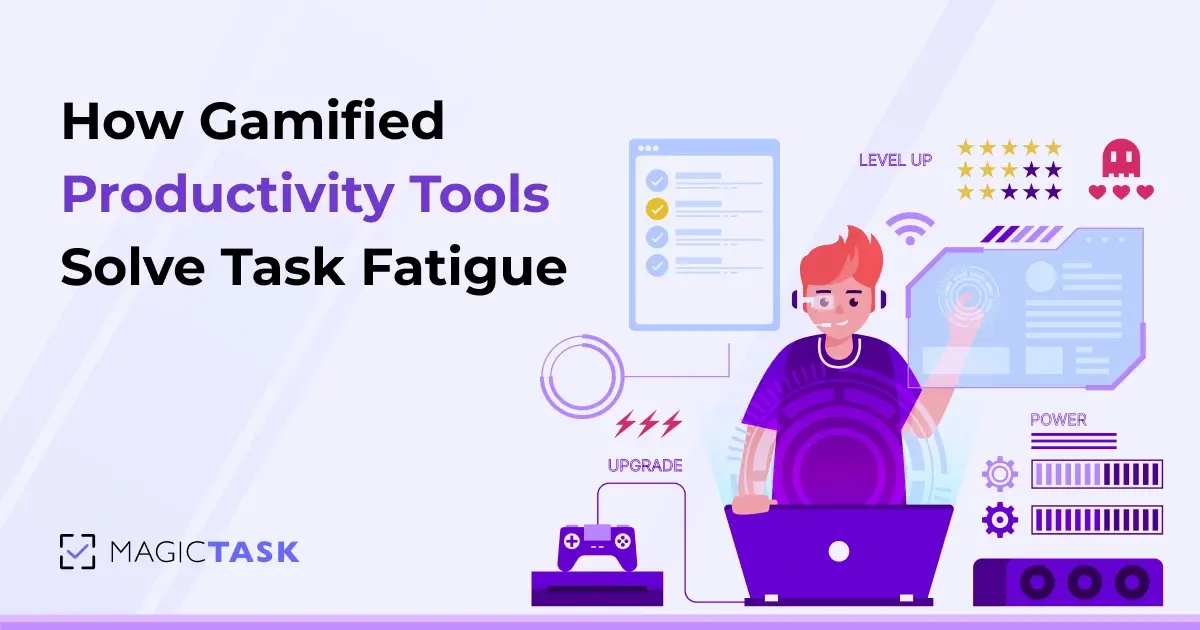Creating A Culture of Accountability: A Practical Guide for Leaders

Accountability isn’t just a corporate buzzword. It’s the foundation of a high-performing team. But the problem is you can’t force accountability. You can’t simply demand it. It has to be built into your company’s culture, starting with leadership and extending to every team member.
Real accountability happens when employees take ownership, not because they’re being watched, but because they genuinely care about their work and how it impacts the organization.
That’s when you know you’ve built something special.
But how do you get there? How do you create a culture where accountability is not just expected but embraced?
In this guide, we’ll break down what a culture of accountability really means, why it’s essential, and how you, as a leader, can cultivate it within your team.
What is a Culture of Accountability?
So, what is a culture of accountability? Is being "responsible" and "accountable" not the same thing?
Let's start with the basics.
Understanding Accountability
At its core, accountability means taking responsibility for one’s actions and outcomes. In the workplace, this translates to employees understanding their roles, owning their work, and being answerable for good and bad results.
Culture of Accountability
A culture of accountability is more than just individuals being responsible for their tasks. It’s about creating an environment where:
- Commitments are taken seriously: If someone says they’ll deliver, the team knows they will.
- Mistakes are learning opportunities: Instead of pointing fingers, people ask, “What can we do better next time?”
- Trust is strong: Employees feel empowered to make decisions, knowing they’ll be supported.
A culture of accountability in the workplace is one in which each person does their part and acknowledges that all employees may contribute to the organization's overall success. It is about accepting responsibility for your task and taking initiative.
This may sound a lot like "responsibility," right? Well, not really, and here's why.
Responsibility vs. Accountability
A lot of leaders mix up responsibility and accountability. Here’s a simple way to think about it:
- Responsibility is about being assigned a task.
- Accountability is about owning the outcome.
For example, a junior software engineer in the organization might be responsible for writing code, but if that code doesn’t meet quality standards or causes project delays, the accountability for that still lies with them.
Why Accountability Matters in the Workplace

A strong culture of accountability isn’t just about keeping people on task. It shapes the entire work environment, influencing team morale and productivity. It also impacts the overall business success.
When accountability is ingrained in your company’s culture, employees feel a sense of ownership over their work. This, in turn, leads to higher performance, better communication, and stronger team dynamics.
Here's why building a culture of accountability matters:
1. Improves Performance
When employees know they’re accountable for their work, they step up their game. They take deadlines seriously, pay attention to detail, track progress carefully, and consistently put in their best effort.
No one wants to be the weak link on a high-performing team.
Accountability also minimizes the need for constant supervision. Instead of managers spending time chasing updates or correcting mistakes, teams proactively manage their own work. This leads to on-time project completion, higher-quality results, and a more self-sufficient team.
2. Trust Becomes the Norm
Trust is the foundation of any great workplace, and accountability strengthens it.
When employees consistently follow through on commitments, it creates a work environment where colleagues can rely on each other. There’s no second-guessing whether someone will deliver on their tasks because accountability is a given.
On the flip side, a lack of accountability can breed frustration. When some team members don’t pull their weight while others pick up the slack, resentment naturally builds.
Over time, this reduces trust between team members and creates a toxic work culture. Therefore, setting clear accountability expectations can prevent this and ensure everyone contributes fairly.
3. Communication Improves
Accountability encourages open, honest communication.
When team members take ownership of their work, they’re more likely to:
-
- Provide regular updates on their progress.
- Speak up when challenges arise instead of staying silent.
- Ask for help or feedback without fear of looking incompetent.
This level of transparency keeps projects on track and prevents misalignment between teams. Instead of last-minute surprises, issues are addressed early, and everyone stays on the same page.
4. Employees Feel More Engaged
Lack of accountability creates a culture of disengagement. If employees see that effort doesn’t matter and underperformers aren’t held accountable, then motivation will drop, and team morale will suffer.
On the other hand, accountable employees feel a sense of purpose in their roles. They are naturally more invested in their work when they know their contributions matter and are trusted to make decisions.
This engagement leads to:
- Higher work satisfaction: Employees take pride in their accomplishments.
- Greater motivation: They push themselves to exceed expectations.
- Lower turnover rates: When employees feel valued, they stay longer.
5. Problem-Solving Gets Faster
Accountable employees don’t wait for someone else to fix a problem—they step up. Instead of passing blame or avoiding tough situations, they actively seek solutions.
This means:
- Roadblocks are addressed early, preventing minor issues from becoming major problems.
- Decision-making becomes more efficient because employees feel empowered to take action.
- Teams become more resilient, adapting quickly to unexpected challenges.
By fostering a culture where employees own their mistakes and take initiative, companies create proactive rather than reactive teams—a key advantage in today’s fast-paced business world.
6. Business Goals Stay on Track
A company’s success is ultimately tied to how well its employees execute their responsibilities. When accountability is deeply embedded in the culture, goals aren’t just talked about—they are achieved.
Every department, team, and individual understands:
- Their role in driving company objectives
- The expectations set for them
- How their performance impacts the bigger picture
As a result, business growth becomes more predictable and sustainable. Instead of struggling with missed deadlines, misalignment, or inconsistent performance, leadership can confidently scale operations, knowing they have a reliable, accountable team in place.
How to Create a Culture of Accountability
Now that you know why the culture of accountability is so important, let's take a look at how to build it in your organization.
1. Hire People Who Already Value Accountability
Remember, accountability isn’t something you can force. It has to be in a person’s nature. That’s why hiring the right people is step number one.
When interviewing candidates, ask questions like:
- “Tell me about a time when you made a mistake. How did you handle it?”
- “Have you ever challenged a process or system at work? What was the outcome?”
Look for candidates who own their past decisions and actively seek ways to improve. These are the people who will naturally fit into an accountable culture.
2. Trust Your Team, But Verify
Trust is crucial, but blind trust can backfire. A strong leader trusts their team while also ensuring accountability.
Pete Peranzo, co-founder of Imaginovation, says: “Trust is built over time. But if things start slipping, if processes aren’t followed, you need to verify more often. If you keep reminding someone 3–4 times and nothing changes, it’s time to replace them. Hire slowly, fire quickly.”
Accountability doesn’t mean endless chances. If someone isn’t following through despite feedback, it might be a sign they’re not the right fit.
3. Set Clear Expectations from Day One
Accountability starts with clarity. If employees don’t know what’s expected of them, how can they be accountable?
- Define roles and responsibilities clearly.
- Set measurable goals and deadlines.
- Make sure everyone understands the why behind their work.
4. Encourage Open Communication (Even When It’s Uncomfortable)
A culture of accountability thrives when employees feel safe speaking up. Encourage them to:
- Ask questions about unclear expectations.
- Challenge outdated or inefficient processes.
- Admit mistakes without fear of blame.
The best employees don’t just follow orders—they think critically and push for improvement.
5. Lead by Example
If leadership isn’t accountable, why should anyone else be?
Michael Georgiou of Imaginovation says - “Sometimes you tell people to do something, but if you’re not doing it yourself, how can you expect them to?”
Accountability has to start at the top. Leaders should be the first to own their mistakes, meet deadlines, and follow through on commitments.
Setting a good example also fosters trust inside your company, which is essential when it comes to holding your team members accountable. Employees who trust their leaders are 24% more inclined to report unethical activities.
6. Recognize and Reward Accountability
Accountability should be celebrated. Publicly recognize employees who consistently take ownership of their work. This can be:
- A shoutout in a team meeting.
- A bonus for exceeding expectations.
- A promotion is when someone consistently steps up.
7. Provide the Right Tools for Accountability
Last but not least. Providing your team with the right tools is one of the most important steps when it comes to building a culture of accountability.
Why?
A strong culture is built on the right habits, and tools can help reinforce those habits.
Some tools you can use for building an accountability culture include:
- Microsoft Excel or Google Sheets can be used as the simplest task-tracking tool. You can add a list of tasks, add due dates in the next column, assignee, etc, and other details if needed.
- JIRA / Asana are some popular project management tools. Now, although these are some of the top project management tools in the market, they are pretty complex to use. Managing tasks in these tools is often time-consuming.
- MagicTask - A simple task management tool that removes clutter and simplifies task management, and infuses accountability in the team. While traditional tools focus on task tracking, MagicTask takes accountability to the next level by making work engaging and motivating.
Instead of feeling like just another management tool, it introduces game-like elements that encourage employees to take ownership naturally.
Here’s how MagicTask helps teams stay accountable:

- Clear Task Assignments: Everyone knows exactly who is responsible for what. Employees can add their own tasks and assign projects and due dates.
- Real-Time Progress Tracking: No need to chase updates; everything is transparent.
- Gamification Elements: By incorporating game-like features, MagicTask motivates team members to stay engaged.
- Visibility:The platform makes it easy to see who’s responsible for each task, reinforcing team accountability.
- Feedback Mechanism: Task comments and progress updates create seamless feedback loops.
With MagicTask, accountability isn’t about micromanaging, it’s about engagement. By making task management feel rewarding, teams stay on track because they want to, not because they have to.
Final Thoughts: Accountability is a Culture, Not a Rule
A culture of accountability doesn’t happen overnight. It’s something that must be hired for, modeled, reinforced, and celebrated—not just expected.
For leaders who are passionate about building strong, motivated teams, accountability is the glue that holds everything together. Tools like MagicTask provide a structured and engaging way to foster accountability, making it easier for teams to track responsibilities, collaborate efficiently, and stay motivated.
By integrating MagicTask into daily workflows, organizations can reinforce accountability in a way that feels natural and rewarding—ultimately driving higher performance and team success.
Similar Blogs
FAQS?Have questions? Look here
Some of the most common challenges include unclear expectations, lack of trust, fear of blame, and inconsistent leadership accountability. Employees may also resist accountability if they see that leaders are not holding themselves to the same standards.
A lack of accountability leads to missed deadlines, decreased productivity, low morale, and higher employee turnover. It can also create a blame-shifting culture where employees avoid responsibility, resulting in poor decision-making and inefficiencies.
Accountability empowers employees to take ownership of their work, whereas micromanagement involves excessive oversight that can lead to decreased motivation and autonomy. A strong accountability culture focuses on results rather than minute-by-minute control.
A strong culture of accountability enhances innovation by ensuring that team members take ownership of their ideas and execution. When employees know they are responsible for results, they become more proactive in problem-solving, risk-taking, and continuous improvement.
Companies can measure accountability by tracking key performance indicators (KPIs) for individual and team performance, conducting regular performance reviews with clear feedback, monitoring project completion rates and adherence to deadlines, and encouraging peer feedback to assess reliability and teamwork.




